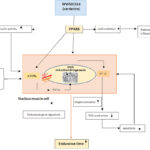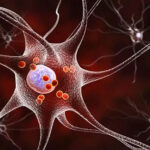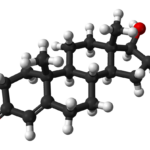Vittorio Emanuele Bianchi
Department of Nutrition, Metabolism, and Endocrinology, Clinical Center Stella Maris, Strada Rovereta, 42, 47898, Falciano, San Marino
Il grasso corporeo è fonte di produzione di sostanze infiammatorie, chiamate citokine, che agiscono su tutti i tessuti del corpo. Un eccesso di grasso corporeo è correlato con un aumento delle componenti infiammatorie e predispone alle malattie croniche degenerative. La riduzione del grasso corporeo mediante una dieta equilibrata svolge una potente azione anti-infiammatoria.
s u m m a r y
Background: Chronic inflammation is a process sustained by the augmentation of circulating cytokines
level and C-reactive protein (CRP). Adipocytes and adipose tissue infiltration with inflammatory cells, are
an important source of adipokines production, and their expansion due to overnutrition is responsible
for increased in inflammation. The reduction of body fat following both controlled diets or gastric surgery
can be favorable in the reduction of pro-inflammatory cytokines.
Methods: A systematic literature search performed using PubMed, Google Scholar and Cochrane Library
database screened for clinical and randomized controlled trials (RCTs) using the combination of the
following keywords: “weight loss, inflammation,” “restricted diet, anti-inflammatory effect.” Studies
including diet intervention, weight loss after gastric surgery have been included. Multidisciplinary
program with the addition of food supplements, exercise, or drugs have been excluded to avoid their
interference with the regulation inflammatory markers.
Results: Out of 967 articles found, 76 were selected, including a total of 6742 patients with a mean age of
44.0 ± 3,3 years and a BMI of 33 ± 6.6. The observation period ranged from 3 weeks up to two years with
an average weight loss per month of 1.1 kg. In most of the studies, it was found that weight loss caused a
significant reduction of plasma level of inflammatory cytokines although three studies did not see any
effect.
Conclusions: In obese and overweight subjects weight loss, induced both by energy-restricted diet or
surgery, is a determinant factor for reducing the level of pro-inflammatory markers. Hypocaloric diet has
an anti-inflammatory effect independent of the diet composition which can play an important role in the
prevention of chronic diseases.
© 2018 European Society for Clinical Nutrition and Metabolism. Published by Elsevier Ltd. All rights
reserved.
1. Introduction
Chronic inflammation represents the primary source of metabolic disorders promoting the onset of insulin resistance [1,2],
atherosclerosis [3], neurodegenerative and cardiovascular disease (CVD) [4], obesity and cancer [5,6]. Markers of inflammation,
although there is no consensus about which tag represents various degree of inflammation, include: leucocytes, granulocytes, fibrinogen, CRP, serum amyloid A, CPR and the adipokinesTNF-a, IL-6, IL1b, IL-8, leptin, adiponectin, resistine plasminogen activator inhibitor-1 (PAI-1) [7,8]. CRP is a protein secreted by hepatocytes in response to systemic inflammation and represents the most frequently used test to detect inflammatory state [9]. Highsensitivity CRP (hs-CRP) is more specific and correlated with obesity [10] and predict the major cardiovascular events [11] and heart failure [12]. Pro-inflammatory cytokines are produced by body fat [13] so that body fat accumulation represents an essential source of adipokines and inflammatory responses [8] contributing to the development of metabolic disorders [14] and CVD [15].
Insulin resistance, is activated by cytokines signaling at the level of various target tissues, primarily in body fat cells, but also at liver and skeletal muscle level [16] and represents a critical factor worsening the metabolic conditions and promoting the development of type-2 diabetes, cardiovascular disease [17], and neuropathy [18]. A high energy and high-fat diet is implicated in the activation of numerous pro-inflammatory biomarkers such as CRP, IL-1, IL-6, IL-8, TNF-a, and MCP1, promoting the development of many chronic diseases including cardiovascular disease [19] neurological disease and cognitive decline [20], metabolic syndrome, aging, and cancer [21]. The healthy metabolic subjects can be described as individuals with a lower level of inflammatory markers [22].
So that, considering the inflammatory impact of diet on inflammatory cytokine secretion, the nutritional therapy could represent a vital prevention strategy on chronic diseases. This review is focused on the specific impact of weight loss on
inflammation.
2. Methods
A systematic literature search was performed using PubMed, Google Scholar and Cochrane library were screened for randomized controlled trials (RCTs) clinical trials using the combination of the following keywords: “weight loss and inflammation,” “restricted diet and anti-inflammatory effect.” All studies enrolling patients following a weight loss program both by diet restriction diet or gastric surgery with low to severe inflammation state were considered. Follow-up performed with healthy diets and no changes in body weight were excluded. Clinical trials using the addition of food supplements, drugs, and exercise were excluded as well as retrospective study design. Studies considering healthy obese subjects, type-2 diabetes, metabolic syndrome (MetS) were included.
3. Results
Out of 967 retrieved articles, 76 were selected, including a total of 6.742 patients with a mean age of 44.0 ± 33.2 years and are reported in the flowchart in Fig. 1. The studies have been classified into in three groups: weight loss by diet intervention (Table 1), weight loss by bariatric surgery (Table 2) and effect of weight loss on gene expression (Table 3).
Table 1 summarizes the clinical studies which evaluated the effect of different types of diets ranging from very low-calorie diet
(VLCD), low calorie diets (LCD), Mediterranean diets on serum inflammatory markers. Between the studies, considerable differences in the number of patients, duration of diet treatment, variety of nutritional programs prescribed and cytokines detection assays exists. The studies have been divided in two groups: one including a large number and another a small number of patients to evidence possible statistics differences. The large number of patients studies were conducted on a population including a mean number of subject of 378 ± 263, with a mean age 48.4 ± 11,14 and aweight loss of 7.3 ± kg in a mean time of 11.6 ± 6,6 months found a significant reduction of inflammatory markers [23e36] except Van Bussel et al.
[35], the most prolonged study reported lasting seven years in patients following an healthy diet, but without significant weight
loss, showed an improvement in endothelial function, but no changes in inflammatory markers.
The smaller groups of patients included a mean number 49 ± 24,2, with a mean age of 46,7 ± 10,7, and mean weight loss of
7,78 ± 3,8 Kg of during 6,7 month of diet therapy [29,32,37e76]. In the smaller groups of patients the body weight loss is more
accentuated. The duration time of diet varyed from a minimum of two weeks [49] until three years [76], a few studies one year [23,44,47,55,77,78] and the majority 2 months [39,48,57,69,74,76,79e81]. The diet program also had a wide range of variability. Some authors adopted the Mediterranean diet style [38,69,81], other the very low calories diet (VLCD) of about 600e800 Kcal/day [32,52,76,82e84]. The VLCD followed by the patientswere not ketogenic because the formation of ketone bodies is associated with a high fat intake in absence of dietary carbohydrates [85]. In the studies a significant disparity in the…






